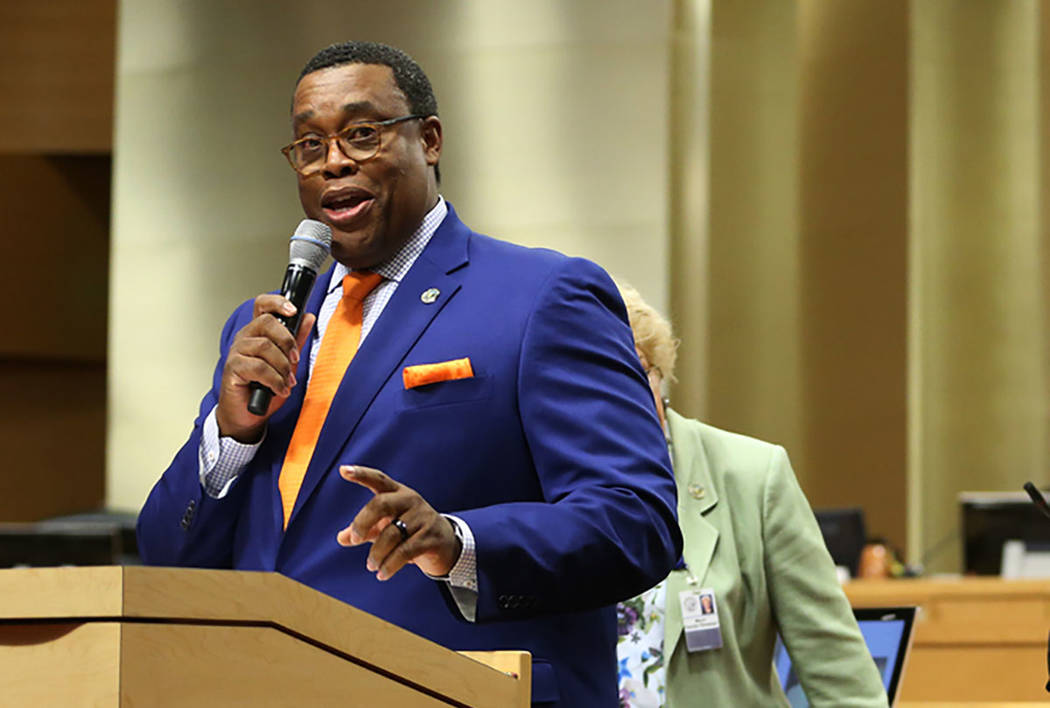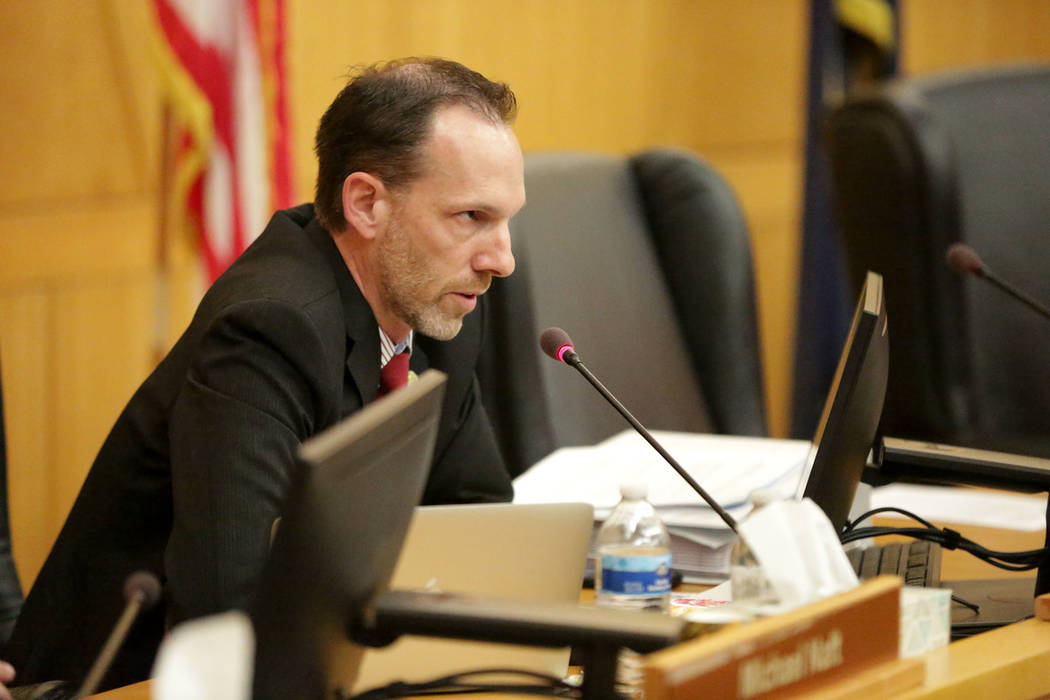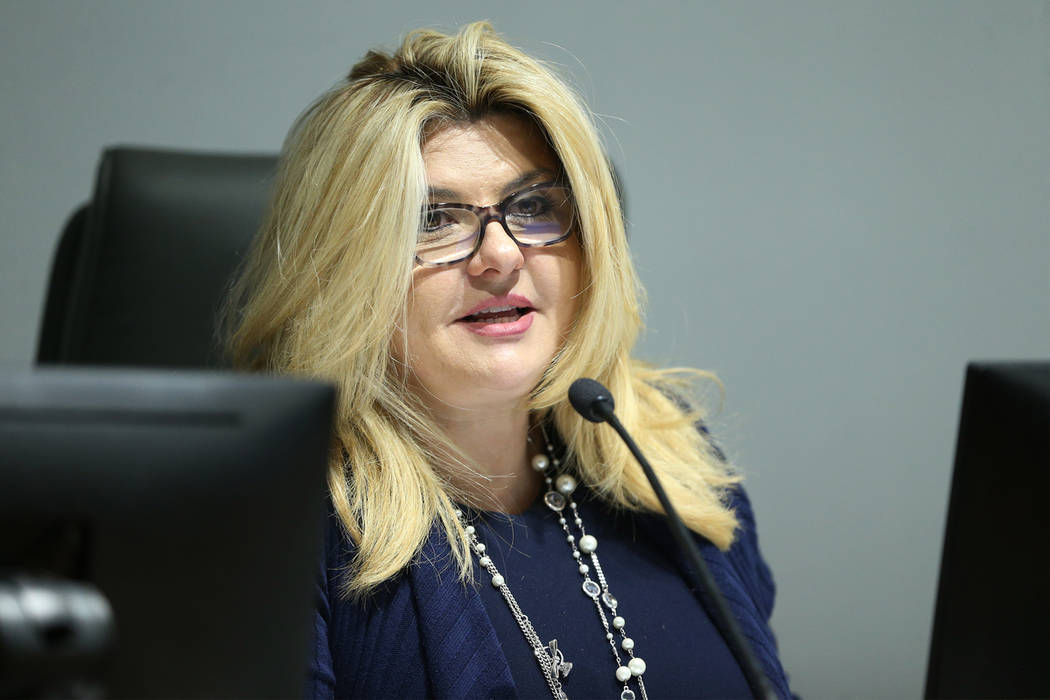Future cloudy for Southern Nevada regional planning group
Las Vegas was recently named the fastest-warming city in the U.S., a dubious distinction that underscores the desire of two elected officials to use their new roles on a regional board to advocate a valleywide approach to fighting climate change.
Clark County Commissioner Justin Jones and Las Vegas Councilman Cedric Crear, two of the newest members of the Southern Nevada Regional Planning Coalition, believe the body is an ideal vehicle to lead the charge.
It would be a first. In its 20 years, the coalition has never established a formal climate change plan, despite its work with regional emissions and sustainability.
But the two officials have confronted at least one early obstacle: The coalition might disband. And Jones and Crear aren’t necessarily pushing back against that either.
Recently, members of the coalition have openly doubted its effectiveness, and some question whether it should even exist. The questions are exacerbated by the lack of direction, funds and dedicated staff to carry out the board’s increasingly murky mission.
This week, North Las Vegas Councilman Scott Black called prior meetings “quite painful and ineffective” as Boulder City Councilman Kiernan McManus described “a lot of discussion, but very little progress.”
The past two years, according to Henderson Councilman Dan Stewart, the coalition has done little “but waste a bunch of time.” Crear acknowledged he would have probably “missed 98 percent of the meetings” if little was being accomplished, while Jones said he was “not optimistic” about the will to press forward.
Said Michele Fiore, the coalition’s current chairwoman: “I just love getting together having these tea parties. But we have to do something.”
Comprised of 10 elected officials from the county, valley cities and the school district, the coalition was established by the Legislature in 1999 to coordinate regional planning. But the coalition delegated that core power to the Regional Transportation Commission’s planning organization because the coalition lacked the staff or resources to do the job.
The board beat back an internal push to dissolve in January, but questions have persisted about whether it has a role anymore. Efforts to address high-profile issues such as homelessness have been greeted with caution against duplicating other agency’s work. Members have also refrained from wading into traditional planning, preferring each entity maintain autonomy.
Stewart, one of three members to support dissolving the coalition at the beginning of the year, a move that would require legislative approval, said he and fellow Henderson Councilman Dan Shaw “simply have not seen the value of this coalition.” But if the board was able to do meaningful work, he said he would be all ears.
“I want to make something perfectly clear: Just because the city of Henderson is in favor of disbanding, that does not mean that we do not want to play well with our neighbors,” he said.
After Jones, one of four new members to recently join the board, questioned whether the coalition had simply suffered from a lack of leadership and imagination, Stewart replied: “I don’t know. It just seemed like we never could come up with anything.”
Others say the coalition could advocate solutions to regional problems. They say hiring an independent contractor as staff — instead of relying on overburdened employees from the chairman or chairwoman’s agency — would help.
“I think we’ve established pretty clearly and beat up, quite frankly, the fact that the current makeup of the (coalition), including the name that constitutes planning, has reached a level of obsolescence,” Black said. “I think we can move on from that point.”
The coalition’s purpose and frequency of meetings will be debated at the next meeting in late June.
On Tuesday, the board unanimously approved a $301,660 budget for fiscal year 2020. Census outreach accounted for $200,000 of that cost.
The spending plan includes funds for the work that’s still performed by the coalition: the regional open space plan, population projections, a proposed strategic planning process and administrative costs, coalition documents show.
Apportioned by share of board membership, the cost works out to $61,000 each for the county and cities of Henderson, Las Vegas and North Las Vegas, and $30,500 each for Boulder City and the Clark County School District.
The coalition had revenues of $305,346, which leaves the budget with a small surplus, the documents show.
Contact Shea Johnson at sjohnson@reviewjournal.com or 702-383-0272. Follow @Shea_LVRJ on Twitter.

























